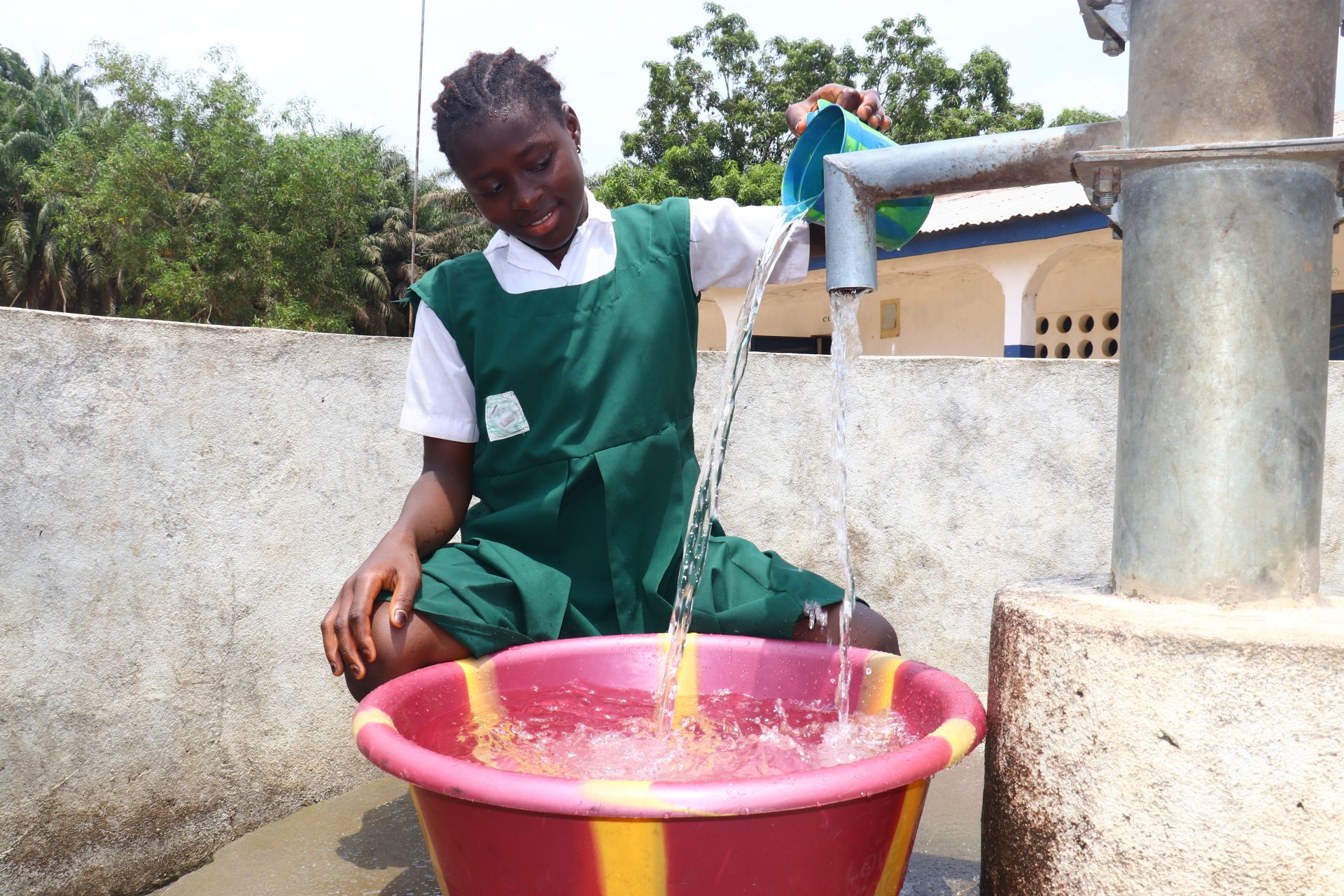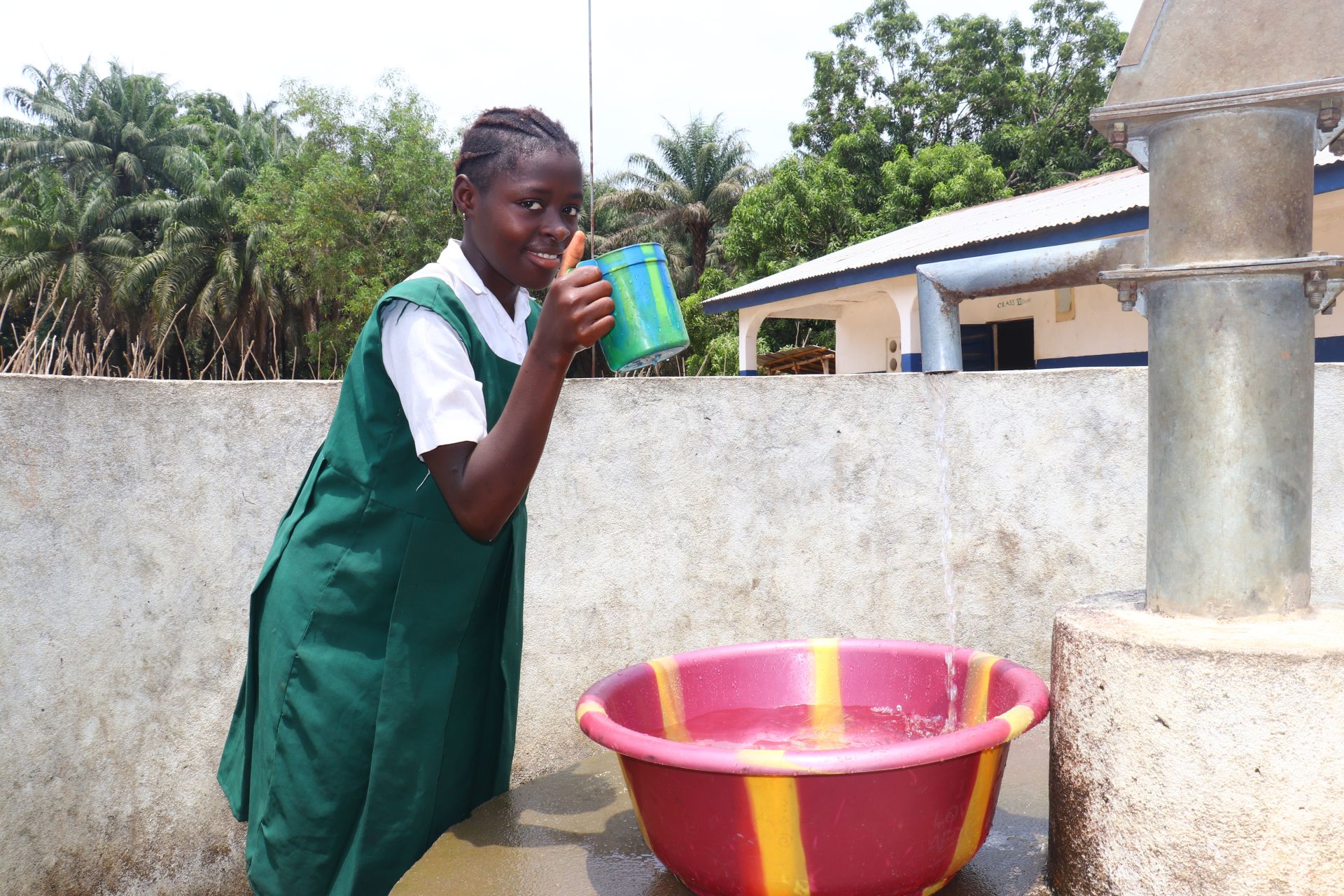The 314 students and 8 staff members of Katongha Primary School have been dealing with a water crisis every day since their main water source broke down several years ago.

The primary water source, a protected dug well with a hand pump (shown above outside classrooms), stopped working in 2020 and has been non-functional ever since. Every day, students must walk to the community maternal child health post (MCHP) to collect water from a dug well, which is not as simple as it sounds. It is far away, and the well's first priority is to serve the health center patients and staff, then the surrounding community members, so students often get pushed to the back of the line. The sheer number of people accessing water from the well causes long delays and frequent breakdowns. The well also experiences seasonal dryness, leaving everyone to scramble for water from any other source they can find.
"I cannot get water to drink at the school because the pump is not working. My friends and I walk to the well at the MCHP to drink water. It is not [at] all times that we can get water to drink at that well because the nurses lock it or there would be people fetching water. The water does not serve everyone at the school. Sometimes, it gets finished before lunch. I bring water in a rubber bottle from my house in the morning. My friends never give me the peace to use my water. Sometimes, they steal the bottle from me and drink all the water from it. I will not get water to drink again until the end of the school day," said 12-year-old Aminata S., shown below, carrying water.

After waiting to collect the water, students must carry it back to school on their heads, which is exhausting and risky.
"They carry water and walk on the main road to the school. They are not safe on the road with a bucket of water on their heads. They are exposed to accidents by the frequent flow of motorbikes on the road," said field officer Phillip James Allieu.
"It is quite frustrating to stay long at this school every day without the effective use of water. I cannot fully concentrate on teaching because of the complaints from the pupils. I go along with them to fetch water from the well at the MCHP. It is not safe to carry water on the head and walk on the main road to the school," said 24-year-old teacher Warrah Kargbo (seen below).

She continued: "The little water we bring to the school for drinking cannot serve everyone. The pupils become stubborn to control when there is no drinking water at the school. They skip classes to go in search of water at the nearby houses of the school. They could drink water that is not good for drinking because there is no other water available at the school."
The physical effort expended diminishes the student's ability to focus. Still, worst of all, the water they work so hard to collect is contaminated, so they frequently complain of fevers, stomachaches, vomiting, and diarrhea. These things leave them missing even more learning time, putting them further behind.
"The academic performance of the pupils of this school will continually drop if there is no sustainable water source at this school," concluded Phillip.
Rehabilitating the school's broken-down well will let students and staff know they can quickly collect safe water to meet their needs. Then, hopefully, they can return to class with the time and energy needed for learning, and the situation at the school will drastically improve.
Note: Our proposed water point can only serve 300 people per day. We have identified another project at Katongha Maternal Child Health Post that should help ensure all of the people in this community have access to safe and reliable drinking water.
The Proposed Solution, Determined Together...
At The Water Project, everyone has a part in conversations and solutions. We operate in transparency, believing it benefits everyone. We expect reliability from one another as well as our water solutions. Everyone involved makes this possible through hard work and dedication.
In a joint discovery process, community members determine their most advantageous water solution alongside our technical experts. Read more specifics about this solution on the What We're Building tab of this project page. Then, community members lend their support by collecting needed construction materials (sometimes for months ahead of time!), providing labor alongside our artisans, sheltering and feeding the builders, and supplying additional resources.
Water Access for Everyone
This water project is one piece in a large puzzle. In Kenya, Sierra Leone, and Uganda, we're working toward complete coverage of reliable, maintained water sources that guarantee public access now and in the future within a 30-minute round trip for each community, household, school, and health center. One day, we hope to report that this has been achieved!
Training on Health, Hygiene & More
With the community's input, we've identified topics where training will increase positive health outcomes at personal, household, and community levels. We'll coordinate with them to find the best training date. Some examples of what we train communities on are:
- Improved hygiene, health, and sanitation habits
- Safe water handling, storage & treatment
- Disease prevention and proper handwashing
- Income-generation
- Community leadership, governance, & election of a water committee
- Operation and maintenance of the water point





 Borehole Well and Hand Pump
Borehole Well and Hand Pump





























